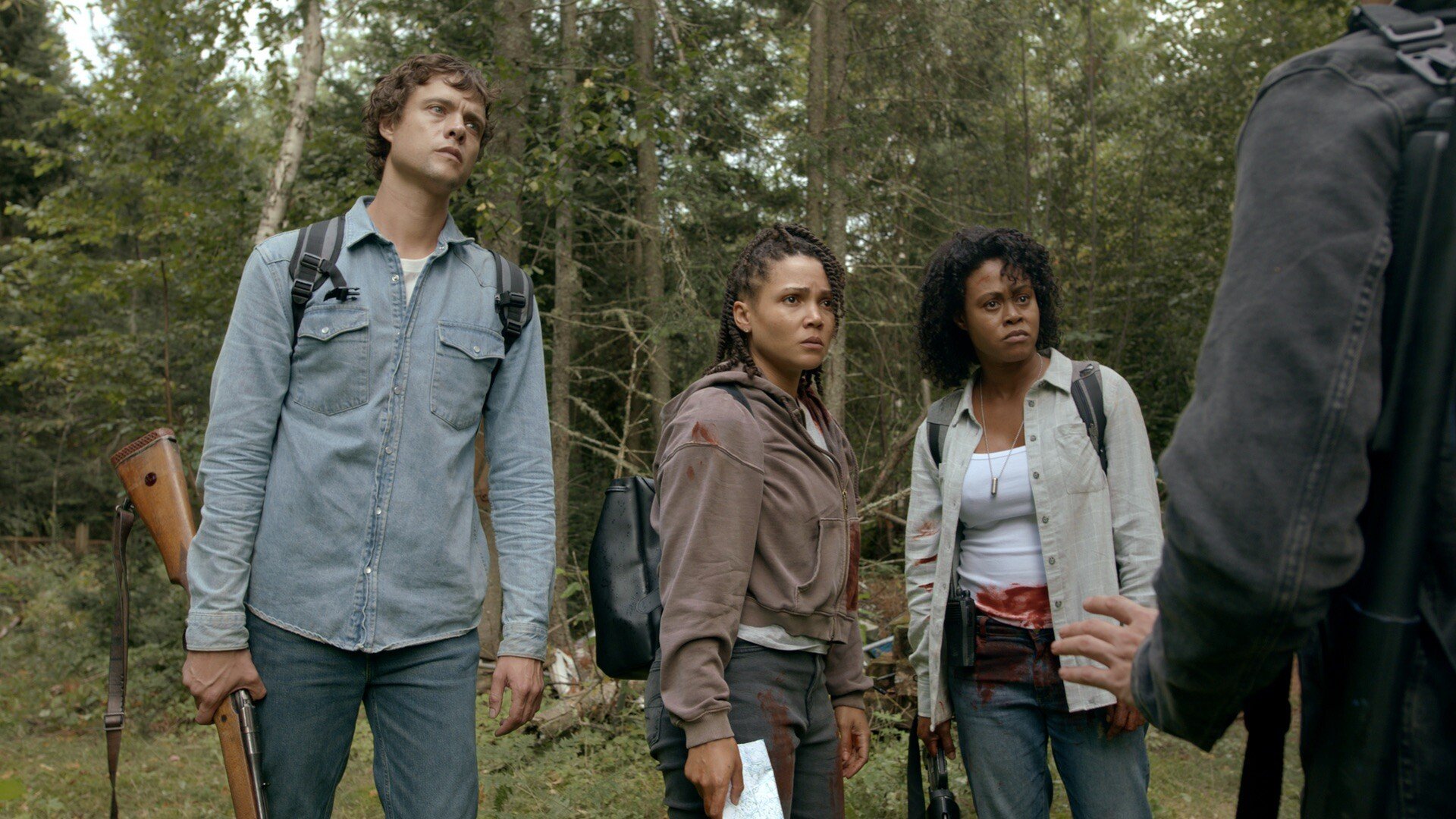All The Lost Ones: Yet Another Canadian Post-Apocalyptic Drama? Excellent!
By Chris Knight
Rating: A-
We’re entering a golden age of Canadian-made post-apocalyptic dramas. Or should that be a Dark Age? Either way, it’s a good development, narratively speaking. This year’s Toronto International Film Festival had three stellar examples: 40 Acres from R.T. Thorne; Can I Get a Witness? by Ann Marie Fleming; and Rumours, co-directed by Guy Maddin, Evan Johnson, and Galen Johnson.
It’s a rich vein for storytellers, as evidenced both by the number of films in the genre — all the way back to classics like Don McKellar’s Last Night — and their individuality.
All the Lost Ones, directed by Mackenzie Donaldson, might actually be better described as mid-apocalyptic. A civil war is raging between environmentalists and a far-right group of nasties calling itself the United Conservancy.
The latter has become the de facto government, at least in parts of the U.S. northeast and into Canada. But the rebel environmentalists are fighting back, and civilian groups find themselves caught in the middle.
This includes the cast of All the Lost Ones, a ragtag blended family living off the grid — or what used to be the grid — in northern Ontario. They’re led by Mikael (Steven Ogg), but we’re introduced to the group through sisters Nia and Penny (Jasmine Mathews, Vinessa Antoine), and Nia’s partner, Ethan (Douglas Smith). There’s also a small but pivotal role for Canadian icon Sheila McCarthy.
In the first of the film’s many effective emotional/cinematic transitions, we leap from an opening montage about the state of the world to a raucous house party, as the group tries to put a bright and brave face on their circumstances. Radio reports suggest that both sides in the conflict are getting close to their location; their well-being depends in large part on who arrives first.
Unfortunately, they run into trouble while on a trip into the nearby (deserted) town for supplies. Nia is cornered by an armed man and his son — part of the problem with the fog of (civil) war is that it’s nigh impossible to know whose side people are on until they start shooting. The location of their homestead may have been given away; at the very least, its existence has been.
What follows is a tense game of cat-and-mouse, with brutal consequences. Between the sheer amount of bloodletting and its psychological repercussions, All the Lost Ones is not for the squeamish, but neither is the violence gratuitous; the film earns every splatter. Mathews and Smith in particular are excellent at selling us on the emotional stakes of their predicament, in several powerful scenes that lift this film above mere didacticism.
I’d be remiss if I didn’t mention a couple of simple but effective bits of writing and production design. The fact that the radio gives the weather not in Celsius but Fahrenheit provides an instant cue that things are not as they used to be in Canada. And it’s equally instructive when a quick image of an abandoned store shows its windows covered not with yellowed copies of the North Bay Nugget but political treatises and revolutionary pamphlets.
There are other ways in which the screenplay lets us down just a little. It brings up the issue of polluted water as a problem, but never quite fully explains what that entails. And for a world thrown into war by an environmental crisis, there’s little evidence of the weather being out of whack.
But I’m nitpicking an otherwise excellent film. All the Lost Ones proceeds from the premise that humans can and will divide themselves along any border or boundary, real or imagined. It is, alas, a proven jumping-off point, but the film makes great use of it in the imaginative and unique story it tells.
All the Lost Ones. Directed by Mackenzie Donaldson. Starring Jasmine Mathews, Vinessa Antoine, and Douglas Smith. Opens November 29 at the Carlton in Toronto, with the 6:40 screening including a Q&A with director Mackenzie Donaldson, moderated by Chris Knight.



